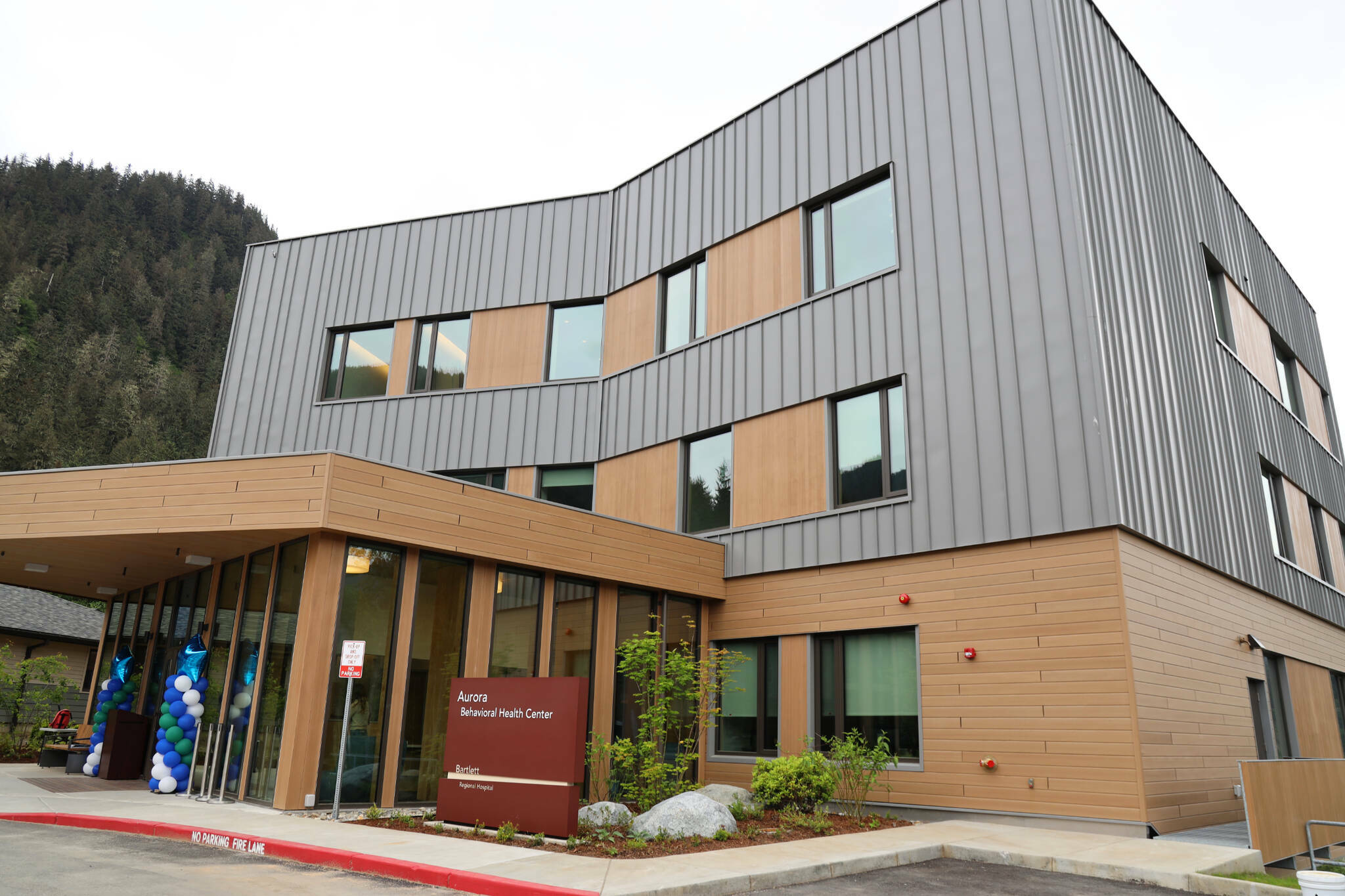This story has been updated to clarify that the crisis stabilization program in the Aurora Behavioral Health Center has closed. The Bartlett Outpatient Psychiatric Services program in the same building remains open.
Bartlett Regional Hospital’s crisis stabilization program officially closed last week, about seven months after the opening of a new center offering such care, due to a lack of funds that is threatening other “non-core” services, according to hospital officials.
Furthermore, those financial woes are being complicated by a dropoff in donations to the hospital’s foundation, the hospital’s board of directors was told at a meeting Tuesday.
The closure occurred a day after Juneau Assembly members evaluated the programs the hospital is considering cutting, but declined to endorse a specific funding remedy for the crisis program.
A memo sent Friday to board members by Ian Worden, the hospital’s interim CEO, states the center’s crisis stabilization services “have been closed for weeks due to staffing challenges.”
“On July 16th the program officially closed due to lack of funding,” the memo states. “Human resources have met with all affected staff. Letters have been sent to the parents/guardians of the adolescents that have used the services since opening in December of 2023.”
The Bartlett Outpatient Psychiatric Services (BOPS) program in the same building remains open, said Erin Hardin, a hospital spokesperson.
The Aurora Behavioral Health Center opened with the intent of providing a range of services to youths ages 12 to 17 — seen as a higher initial priority than similar adult care — at a facility intended to house them for short-term stays, rather than having them go to the emergency room.
The hospital has reverted to its procedures before the center opened, with people arriving at the emergency room who meet admission being accommodated until placement at another facility is found, said Kim McDowell, the hospital’s chief operating and nursing officer, during a board of directors meeting Tuesday. She said people arriving at the Aurora Behavioral Health Center won’t be left stranded.
“The vestibule is still open so if somebody approaches there and enters that building they can still ring the bell, which will alert the (psychiatric emergency services) clinician via phone to be able to meet that patient and bring them over to the emergency department,” she said.
While staffing shortages continue, existing staff is making adjustments to handle such patients, McDowell said.
“We have refined processes with our case management team and our behavioral health team that really have come together to be able to provide care for that adolescent while they’re here so they’re not sitting idle without anything,” she said. “So they are getting some level of behavioral health help while they’re here.”
The halt to the crisis program at Aurora Behavioral Health Center affected few people since “there were very few patients who were able to be served since it opened last fall,” Hardin said.
The financial woes resulting in Bartlett leaders considering reducing or eliminating six so-called non-core programs were presented to the board in May and subsequently to the Assembly. Among them are Rainforest Recovery Center, which provides residential and outpatient substance abuse treatment; Applied Behavior Analysis (ABA) Therapy, which works with people ages 2-21 diagnosed with autism; and hospice and home care.
Board members and administrators have stated the hospital has been losing about $1 million a month since the summer of 2020 and will run out of cash within three years without significant changes. The hospital board in June approved a set of resolutions seeking funding from the city and/or third-party entities to support the programs.
Assembly members, during a Committee of the Whole meeting July 15 voted to send ordinances related to the programs under scrutiny to its Finance Committee for further evaluation. The only ones to receive specific proposed funding were hospice and home health, with a total of $386,000 specified since Bartlett’s board has approved a resolution to prepare a five-year sustainability plan for the services.
Among the potential funding sources previously discussed by Assembly and hospital officials is a voter-approved measure in the Oct. 1 municipal election. City Manager Katie Koester told Assembly members they need to approve any such question by its July 29 meeting for it to appear on the ballot — and no such proposals emerged from last Monday’s meeting.
Meanwhile, the financial hardship is taking a toll on donations to the hospital’s nonprofit foundation, said Maria Uchytil, the foundation’s executive director, during Tuesday night’s hospital board meeting.
“I had some very tough conversations with high-end donors that have contributed to the crisis center,” she said. “And I have asked senior leadership to make some time available to speak with some of these donors.”
“And I would respectfully request that also as board members, if you were here when that decision was made way back to fund the crisis center, you would have some conversations with these donors who are — I don’t want to say upset — but maybe disappointed is more the word right now. This is not grant money, this is donor money, so it is a very sensitive subject.”
In response to a board question about the number of donors and amounts of money involved, Uchytil said there were six or seven total donors, and perhaps three contributed specifically to the Aurora Behavioral Health Center. She estimated $80,000 to $90,000 was involved.
• Contact Mark Sabbatini at mark.sabbatini@juneauempire.com or (907) 957-2306.

